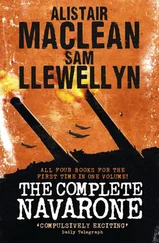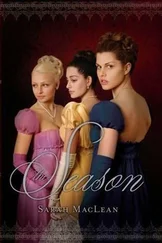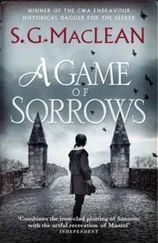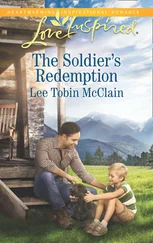Straloch nodded. ‘And the map?’ I held it out to him, but he would not take it in his hand. Rainwater was running down his sleeves and every other part of his clothing, and he would not risk damage to the document. He asked instead that I should place it on his desk next to the cachet box. ‘I take it you have no other business elsewhere tonight, Mr Seaton?’
I affirmed that I had none.
‘Good, then you are free to spend tonight here? I am much interested in this business, and the assessment of a map cannot be made in a moment. Your provost makes clear his desire that the matter should not be noised abroad, and I fear we will have no privacy at the dinner table here, but if you will stay the night we can talk at more length of the matter, and I can examine the map. You can stay?’
I had not expected an instant answer from Straloch on the map or its import, and had made no arrangements to spend the night elsewhere. I was not entirely glad, though, at the prospect of facing down the cold dislike of Isabella Irvine throughout the meal. I accepted the offer of his hospitality with something of a heavy heart.
‘My niece will have a room made up for you. My wife is still recovering from her latest childbed, and is not yet ready to take charge of the house again.’ He smiled. ‘As you will see, we have been many times blessed. I will have Isabella fetch you some dry boots, too, or you will die of a fever before the night is out, as will I if I do not go and change soon out of the rest of these sodden hunting rags.’ Our interview presently over, he opened the door and called for his niece to be fetched. Within two minutes, the girl appeared and accepted her instructions without demur, although not without registering her distaste for the task in her ice-grey eyes.
I had scarcely had time to dry myself and change my clothing before a gong in the hall below beat out the call to assemble and eat. I followed the echoing noise and the stream of people spilling from the upper floors down the great stairway and on to the dining hall of Straloch. The room was brightly lit, with candles burning in every sconce, and in two chandeliers suspended from the ceiling. Family portraits lined the panelled walls, and vases and ornaments of the finest German porcelain decorated a side table. Heavy black velvet drapes, trimmed with gold brocade, were shut against the darkness of the night. The glassware must have been the work of the finest Venetian craftsmen. I had not seen such a room since I had last set foot in Delgatie. The long refectory table was seated for twenty, the younger children having already been fed by their nurses. Robert Gordon was seated at one end of the table and his wife, indeed tired and pale, yet with a welcoming smile, at the other. At least four of the older children were there, and a gaggle of cousins, friends and kin whom I could scarcely distinguish one from the other.
There was little conversation to begin with. The hunters were all too ravenous for talk and those who had stayed at home showed little enthusiasm for conversing without them. I was seated across from Isabella Irvine. She had exchanged her day dress for a gown of deep green velvet, the sleeves shot through with silk and the wrists and bosom trimmed with the most delicate white lace. At her throat was an emerald set in gold. I looked over at her several times, in a vain attempt to remember her, to find that passage of my mind through which she had already walked; she contrived to look at me not at all. As dishes were disposed of and more brought in, the hunger was gradually sated and conversations began to rise at the table. There was talk, inevitably, of the day’s hunt, of the pursuits, the triumphs and the near misses, the prowess of the horses, the courage of the dogs and the cunning of the prey. The lady of the house could be assured that her larder was well-stocked. In time, conversation turned to talk of other hunts in other places, and then to those places themselves, and the families and peoples and history thereof. And soon, as often in such cases, there was talk of slights and offences, and scandals and outrages and foes. The laird, who had sat throughout at his meat with an air of benevolent contentment, began to look less at his ease as his sons and their cousins began to speak hotly of slanders encountered and how they should be met. He knew too well how such things must end, of the fights and the fires and the deaths and the mournings. The ballads would be no comfort to their mother once they were gone, and he counselled them to speak no more of such things in front of her. There was a lull, a pause, before other things began to be spoken of; mention was made of dissatisfactions in the South and of rumours heard in the North, but again these were quickly silenced, this time with reference to me.
‘Mr Seaton here can have no interest in these matters, I am sure; he is a man of learning, not politics. There will be politics aplenty in the town of Banff to satisfy him, no doubt, without we should force him to listen to our concerns.’ The warning had been given, and it was the laird himself who had given it: I was not one of their own, and was not to be made privy to the affairs of the Gordons. As this registered, there was an alteration in the atmosphere round the table; I recognised it well as attention shifted now to me. Robert Gordon’s wife, Catherine Irvine, came to my aid.
‘You are a schoolmaster, Mr Seaton.’
‘I am, madam. I am undermaster in the grammar school of Banff.’
‘I have heard it is a good school.’
‘I have many able pupils, and the master, Gilbert Grant, is a fine man of great learning and good discipline. He has affection and respect in the town as well as the schoolroom.’
‘Respect in the young is a rare and precious commodity,’ interjected Straloch. ‘Without it there can be no good schooling, and without that the state is in peril.’
The younger men around the table had, I saw by their faces, heard this many times before, but had the good sense not to respond.
‘And were you a scholar there yourself, Mr Seaton?’ It was the lady this time.
I did not like this narrowing in on me. ‘Yes, I had all my grammar schooling there, under Mr Grant.’
‘Well, then,’ said the lady, a sad but warm smile coming on to her face, ‘you must surely have known Archibald Hay, the heir to Delgatie.’
‘Who did not know Archie?’ It was one of Straloch’s nephews, discarding a chop and reaching for another one. ‘There was never a fight nor a feast in the North that Archie Hay was not at the heart of. Do you remember that time at Rothiemay–’
But he was interrupted by his brother, who was looking at me now with narrowed eyes. ‘But surely, are you not that fellow, the minister fellow who was always with him? Was that not you?’
I had not had the chance to answer before another joined in. ‘Why, yes. Alexander Seaton! Always at Archie’s side. Heavens! I remember that time at Slains when he lost his boots at a game of dice and you carried him on your back through the mud to his horse! That is why I thought I knew you; it was not from here at all.’ The fellow was well pleased with the memory. Others joined in with their reminiscences of Archie, but I heard little of what was said. Nothing reached me through the wall of ice now risen between me and Isabella Irvine. She had avoided my gaze throughout the meal, but now she fixed me with cold, unflinching eyes. With a rising feeling of nausea, I began to remember how I knew her name. I would have got up from the table then, pleading illness, or fatigue, or God knows what other excuse, but there was to be no retreat for me.
‘So you were the young fellow Delgatie had such hopes of, that you might calm his heir? Well, there are some colts that will not be broken: they are better left to run free. I am heart sorry for the loss of your friend, Mr Seaton. He died in a noble cause.’ The laird’s words were echoed round the table, and toasts were drunk to the memory of Archie, and to Queen Elizabeth of Bohemia, and to her brother, our own king. The laird had carried on talking directly to me, about the family of Delgatie, and the tragedy of Archie’s loss to the family and to the country, and then of Katharine. ‘And why they sent that lassie away to the South, banished to that old man, I do not know. A brood of fine grandchildren near to hand would have eased their grief and their old age.’
Читать дальше












